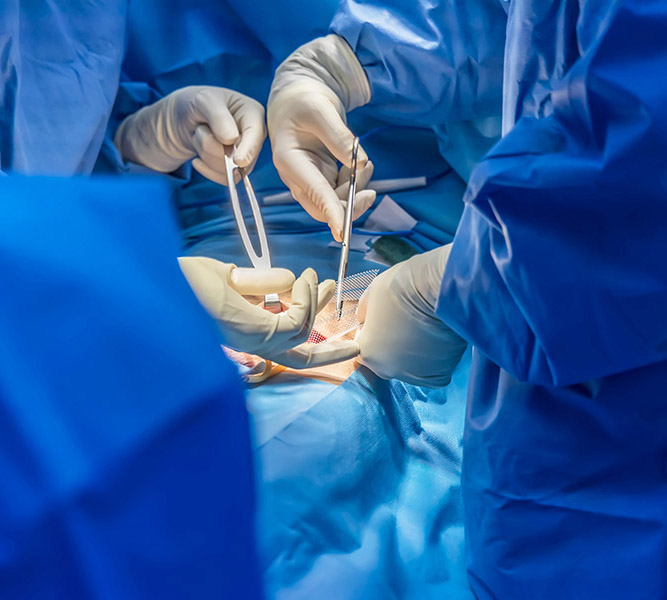What are Hernias?
Hernias occur when an organ or tissue protrudes through a weak spot in the surrounding muscle or connective tissue. This can result in a noticeable bulge or lump, often causing discomfort or pain. Hernias can develop in various areas of the body, including the abdomen, groin, and upper thigh.
What are the Symptoms of Hernias?
Identifying hernia symptoms is crucial for timely intervention. Common symptoms include:
- Bulge or Lump: A visible bulge or lump, especially during activities like lifting or straining.
- Pain or Discomfort: Discomfort or pain at the site of the bulge, especially when coughing or bending over.
- Feeling of Heaviness: A sensation of heaviness or pressure in the affected area.
- Burning or Aching: Burning or aching sensations at the site of the hernia.
If you experience these symptoms, it’s important to consult with a healthcare professional for an accurate diagnosis.
How are Hernias Treated?
Treatment for hernias depends on factors such as the size and severity of the hernia and the presence of symptoms. Common treatment options include:
- Watchful Waiting: Small, asymptomatic hernias may be monitored without immediate intervention.
- Hernia Trusses or Belts: Supportive devices may be recommended to help manage symptoms in some cases.
- Lifestyle Changes: Adjustments to activities and habits may be suggested to alleviate symptoms.
- Surgical Intervention: Surgery is often recommended for larger or symptomatic hernias to repair the weakened tissue and prevent complications.
Surgical Options for Hernia
When surgical intervention is necessary, our experienced surgeons at [Surgery Center Name] offer various options, including:
- Laparoscopic Hernia Repair: A minimally invasive procedure involving small incisions and the use of a laparoscope for hernia repair.
- Open Hernia Repair: In some cases, an open surgical approach may be chosen, particularly for complex or larger hernias.
The choice of surgical option depends on individual factors and will be discussed with your surgeon.
What Does Recovery Look Like After Hernia Surgery?
The recovery process following hernia surgery varies, but here are general aspects to consider:
- Postoperative Monitoring: Close monitoring to ensure proper healing and address any immediate concerns.
- Pain Management: Medications may be prescribed to manage postoperative pain.
- Dietary Guidelines: Gradual reintroduction of a normal diet under the guidance of healthcare providers.
- Resuming Activities: Gradual return to regular activities, with specific guidelines on lifting and strenuous exercise.
With locations in Riverside, Redlands, San Bernardino, Corona, Barstow and Eastvale, California,, our dedicated surgical team is committed to providing specialized care for optimal outcomes in hernia surgery. Contact us today to schedule a consultation and take the first step towards a hernia-free and improved well-being



